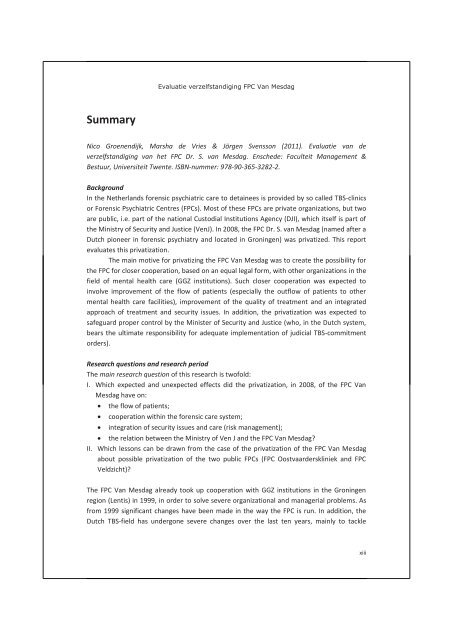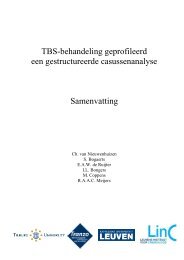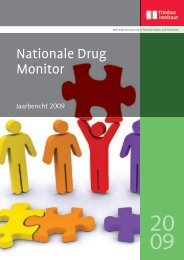Evaluatie van de verzelfstandiging van het FPC Dr. S. van Mesdag
Evaluatie van de verzelfstandiging van het FPC Dr. S. van Mesdag
Evaluatie van de verzelfstandiging van het FPC Dr. S. van Mesdag
- No tags were found...
You also want an ePaper? Increase the reach of your titles
YUMPU automatically turns print PDFs into web optimized ePapers that Google loves.
<strong>Evaluatie</strong> <strong>verzelfstandiging</strong> <strong>FPC</strong> Van <strong>Mesdag</strong>SummaryNico Groenendijk, Marsha <strong>de</strong> Vries & Jörgen Svensson (2011). <strong>Evaluatie</strong> <strong>van</strong> <strong>de</strong><strong>verzelfstandiging</strong> <strong>van</strong> <strong>het</strong> <strong>FPC</strong> <strong>Dr</strong>. S. <strong>van</strong> <strong>Mesdag</strong>. Ensche<strong>de</strong>: Faculteit Management &Bestuur, Universiteit Twente. ISBN-nummer: 978-90-365-3282-2.BackgroundIn the Netherlands forensic psychiatric care to <strong>de</strong>tainees is provi<strong>de</strong>d by so called TBS-clinicsor Forensic Psychiatric Centres (<strong>FPC</strong>s). Most of these <strong>FPC</strong>s are private organizations, but twoare public, i.e. part of the national Custodial Institutions Agency (DJI), which itself is part ofthe Ministry of Security and Justice (VenJ). In 2008, the <strong>FPC</strong> <strong>Dr</strong>. S. <strong>van</strong> <strong>Mesdag</strong> (named after aDutch pioneer in forensic psychiatry and located in Groningen) was privatized. This reportevaluates this privatization.The main motive for privatizing the <strong>FPC</strong> Van <strong>Mesdag</strong> was to create the possibility forthe <strong>FPC</strong> for closer cooperation, based on an equal legal form, with other organizations in thefield of mental health care (GGZ institutions). Such closer cooperation was expected toinvolve improvement of the flow of patients (especially the outflow of patients to othermental health care facilities), improvement of the quality of treatment and an integratedapproach of treatment and security issues. In addition, the privatization was expected tosafeguard proper control by the Minister of Security and Justice (who, in the Dutch system,bears the ultimate responsibility for a<strong>de</strong>quate implementation of judicial TBS-commitmentor<strong>de</strong>rs).Research questions and research periodThe main research question of this research is twofold:I. Which expected and unexpected effects did the privatization, in 2008, of the <strong>FPC</strong> Van<strong>Mesdag</strong> have on: the flow of patients; cooperation within the forensic care system; integration of security issues and care (risk management); the relation between the Ministry of Ven J and the <strong>FPC</strong> Van <strong>Mesdag</strong>?II. Which lessons can be drawn from the case of the privatization of the <strong>FPC</strong> Van <strong>Mesdag</strong>about possible privatization of the two public <strong>FPC</strong>s (<strong>FPC</strong> Oostvaar<strong>de</strong>rskliniek and <strong>FPC</strong>Veldzicht)?The <strong>FPC</strong> Van <strong>Mesdag</strong> already took up cooperation with GGZ institutions in the Groningenregion (Lentis) in 1999, in or<strong>de</strong>r to solve severe organizational and managerial problems. Asfrom 1999 significant changes have been ma<strong>de</strong> in the way the <strong>FPC</strong> is run. In addition, theDutch TBS-field has un<strong>de</strong>rgone severe changes over the last ten years, mainly to tacklexiii
















